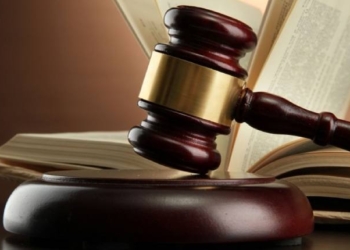New Delhi: Shiv Sena-UBT chief Uddhav Thackeray has moved the Supreme Court against the Election Commission decision recognising the Eknath Shinde faction as the official Shiv Sena, saying it “has failed to discharge its duties as a neutral arbiter of disputes” and “acted in a manner undermining its constitutional status”.
Thackeray, in the plea filed through advocate Amit Anand Tiwari, said the EC has failed to appreciate that the petitioner enjoys overwhelming support in the rank and file of the party.
“The petitioner has an overwhelming majority in the Pratinidhi Sabha which is the apex representative body representing the wishes of the primary members and other stakeholders of the party. The Pratinidhi Sabha is the apex body recognised under Article VIII of the Party Constitution. The Petitioner enjoys the support of 160 members out of approximately 200 odd members in the Pratinidhi Sabha,” it added.
The plea contended that the EC has failed to discharge its duties as a neutral arbiter of disputes under para 15 of the Symbols Order and has acted in a manner undermining its constitutional status.
On February 17, the Election Commission allotted the Shiv Sena party name and the bow and arrow symbol to the faction led by Shinde.
“The ECI has disregarded the party Constitution of 2018 (which was admitted even by the respondent No 1 (Shinde) to be the constitution governing the parties) on the ground that such a constitution is undemocratic and that it was not communicated to the Commission. These observations are totally erroneous as the amendments in the Constitution were categorically communicated to the Commission in 2018 itself and the petitioner will place clear evidence in this regard,” said the plea, seeking interim stay on the EC order.
The plea contended that the test of legislative majority adopted by the EC could not have been applied at all in view of the fact that the disqualification proceedings were pending against the legislators supporting Eknath Shinde.
“If in the disqualification proceedings, the legislators are held to be disqualified, there is no question of these legislators then forming a majority. Thus, the basis of the impugned order itself is constitutionally suspect,” it added.
The plea further contended that the EC has erred in holding that there is a split in the political party.
“The EC held that there was a split not only in the legislative wing of Shiv Sena but also in the political party. A bare reading of the Petition filed by Respondent No.1 (Shinde) under para 15 of the Symbols Order would show that there was no such averment made in the petition whatsoever and the only averment was made in regard to the split in Legislative Party. In the absence of any pleadings and evidence that there was a split in a political party, the finding of the ECI is completely erroneous on this ground,” added Thackeray’s plea.
The plea added that the EC holds that the disqualification under the Tenth Schedule and proceedings under para 15 of the Symbols Order operate in different spheres and that disqualification is not based on cessation of membership of that political party. “The observations in the impugned order are in complete ignorance of para 2(1) (a) of the Tenth Schedule which itself envisages cessation of membership of the political party based on which the said member is liable to be disqualified,” the plea argued.
“It is respectfully submitted that if a legislator has already ceased to be a member of a political party and such determination under the Tenth Schedule is only ex post facto recognition of the said fact, then the proceedings under para 15 of the Symbols Order cannot be in variance and/or override the outcome of the proceedings under the Tenth Schedule,” it added.
A constitution bench of the Supreme Court is currently considering the issues relating to the Shiv Sena rift.
On February 17, the Supreme Court declined to make immediate reference to a seven-judge bench the reconsideration of its 2016 Nabam Rebia judgment, which restricted the power of the Speaker to examine disqualification petitions against MLAs if a resolution for his removal is pending.
A five-judge bench headed by Chief Justice of India D.Y. Chandrachud said the issue of reference will be decided only with the merits of the case and fixed the matter for hearing on merits on February 21. The bench observed that the question of reference to 2016 Nabam Rebia judgement to a larger bench can’t be decided in “abstract manner, isolated and divorced from facts of the case”.
(IANS)

















